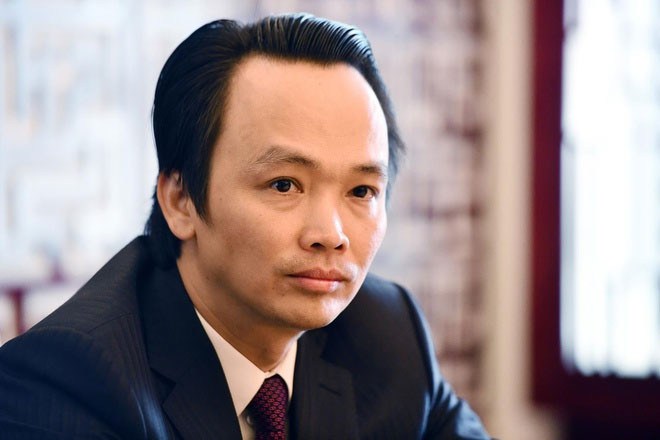
ROS of FLC Faros, a construction company, was described as the ‘strangest’ share in the stock market of Vietnam. The share price increase at lightening speed helped Quyet become the richest businessman in late 2016 and early 2017 thanks to a large amount of shares he was holding and the sky-high prices.
Just within several years on the bourse, the share repeatedly caused upheavals. It was added into VN30, or the basket of the 30 key shares in the stock market, and began witnessing a succession of days of price increases, thus helping the former President of FLC achieve a fortune worth tens of trillions of dong.
When it entered the HCM City bourse on September 1, 2016, ROS caught special attention from investors. With the reference price of VND10,500 per share, the capitalization value at that moment was over VND4.5 trillion.
An investigation found that from April 2014 to September 2016, with an aim of appropriating investors’ money, Quyet and his two younger sisters Trinh Thi Minh Hue and Trinh Thi Thuy Nga, and Huong Tran Kieu Dung, former vice president of FLC and former chair of BOS Securities, fabricated documents to fake charter capital of VND4.3 trillion with 430 million ROS shares (the initial capital was VND1.5 billion). The real contributed capital was VND1.197 trillion.
After that, Quyet directed his workers to prepare dossiers and send them to state management agencies asking for permission to register the deposit and list ROS at HOSE.
From September 2016 to March 2022, Quyet told Hue to use the accounts in the name of Trinh Van Quyet and 40 other securities accounts in others’ names to buy and sell ROS.
Hue, as directed by Quyet, sold 391 million ROS shares created by the fake capital and collected VND4.818 trillion.
After ROS debuted on the bourse, beginning in October 2016, investors saw a sharp rise in traded volume with 50-70 million units transferred each trading session.
ROS share prices then increased and reached the VND100,000 per share threshold just several months after the debut, or 10 times higher than the reference price in September 2016.
Holding a large amount of shares, in November 2016, Quyet caused a surprise when surpassing Pham Nhat Vuong, president of Vingroup, and became the richest billionaire in the stock market. At that moment, Quyet’s assets had the value of VND33 trillion, or $1.46 billion, mostly thanks to the 290 million ROS, while Vuong had VND32.3 trillion.
Le Thi Ngoc Diep, the wife of Quyet, also entered the list of top 10 billionaires in the stock market.
The sharpest price increase of ROS was seen in the period from late September 2017 to early November of the same year. Investors were surprised when seeing the price of the little known construction company increase by 10 times and then by another twofold to VND215 trillion by early November 2017.
Though ROS prices climbed to new peaks in 2017, which helped Quyet’s asset value increase rapidly, once reaching VND50 trillion, Quyet fell from the No1 position, because Vuong increased the amount of VIC shares he held.
Though Quyet’s assets escalated rapidly, his name was not found in Forbes’ list of Vietnamese dollar billionaires.
Meanwhile, Nguyen Thi Phuong Thao, CEO of Vietjet Air, was recognized by Forbes as the second ranked dollar billionaire in Vietnam in 2017. Tran Dinh Long from Hoa Phat and Nguyen Dang Quang from Masan joined the list in 2018.
Delisting and share price fall
ROS shares began seeing a sharp price decrease after the enterprise set the goal of obtaining slight increase in revenue, but post-tax profit dropped sharply in comparison with 2017.
Within one year, share prices decreased five times from the peak in November 2017. In late 2020, ROS was traded at VND2,000 per share.
Investors then doubted the ROS price performance as its price fluctuated heavily all the time, which did not depend on the enterprise’s business results.
In early 2022, ROS price escalated to VND15,000 per share before dropping to VND2,500 per share just before the compulsory delisting on September 5, 2022.
After the delisting, the 568 million ROS shares have not been traded on UpCom like other delisted shares. Many investors have had to keep ROS.
Tuan Nguyen